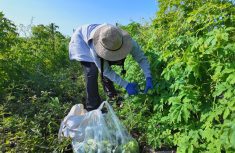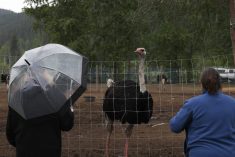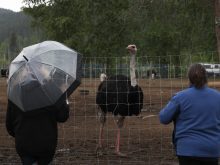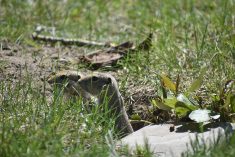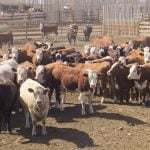The Canadian federal government said Feb. 19 it had secured 500,000 doses of a human vaccine against avian influenza as part of a contingency plan to protect those most at risk.
Bird flu has spread among poultry flocks and herds of dairy cattle in the United States, has sickened nearly 70 people and killed one. It’s also been detected in migratory birds and an assortment of animals like alpacas, cats, rodents, marine mammals and a pig.
Read Also

Ample supplies and improved livestock sector to boost Canadian feed sector: FCC
Abundant feed grain supplies and improved profitability for the livestock sector should support strong feed demand and sales through the winter, says a new report from Farm Credit Canada.
Canada has reported one human case of the disease — a teenage girl in British Columbia who was hospitalized with H5N1 avian influenza late last year.
There are 35 current outbreaks of avian influenza in Canadian poultry, according to Canadian Food Inspection Agency data. No cases have been found in Canadian cattle.
“To date, there has been no evidence of sustained person-to-person spread of the virus in any of the cases identified globally. However, avian influenza has the potential to cause serious illness in people,” the government said in a Feb. 19 news release.
“While the current risk to the public remains low, individuals with higher-level exposure to infected animals are at increased risk and should take appropriate precautions.”
Sixty per cent of vaccine doses will be dispersed to the provinces and territories and 40 per cent will be kept in a federal stockpile.
Widespread vaccination isn’t planned. It will be up to provincial and territorial governments to decide if vaccination is needed for those most at risk.
Preliminary guidance from Canada’s National Advisory Committee on Immunization shows that groups considered most at risk for contracting avian influenza are those who handle the live virus in a lab setting, followed by those who have ongoing contact with infected animals, such as those working on a farm with an active outbreak or involved with culling sick animals.




